Are we born with an identity?
Our identity says something about who we are. We are all unique, so our identities are different. Can we change our identity, or will our identity remain the same throughout our life?

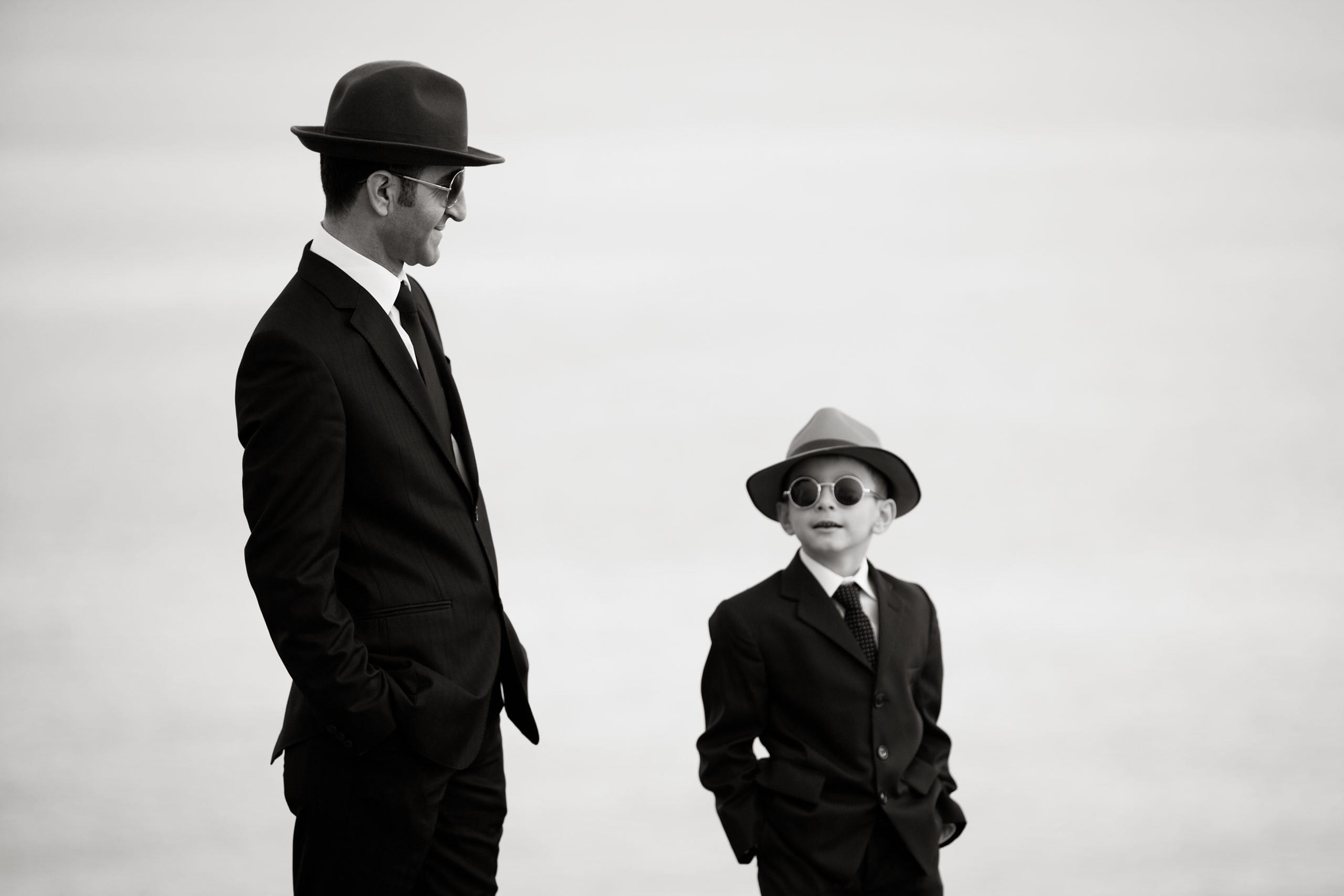
What is identity?
Identity develops over time, and you are not born with a certain identity. We can change our identity over time.
Personal identity is about who we are and who we want to be. Everyone has their own identity, and we are all unique and not the same as everyone else.

En ung mann som ser mot oss med lue og ring i leppa.
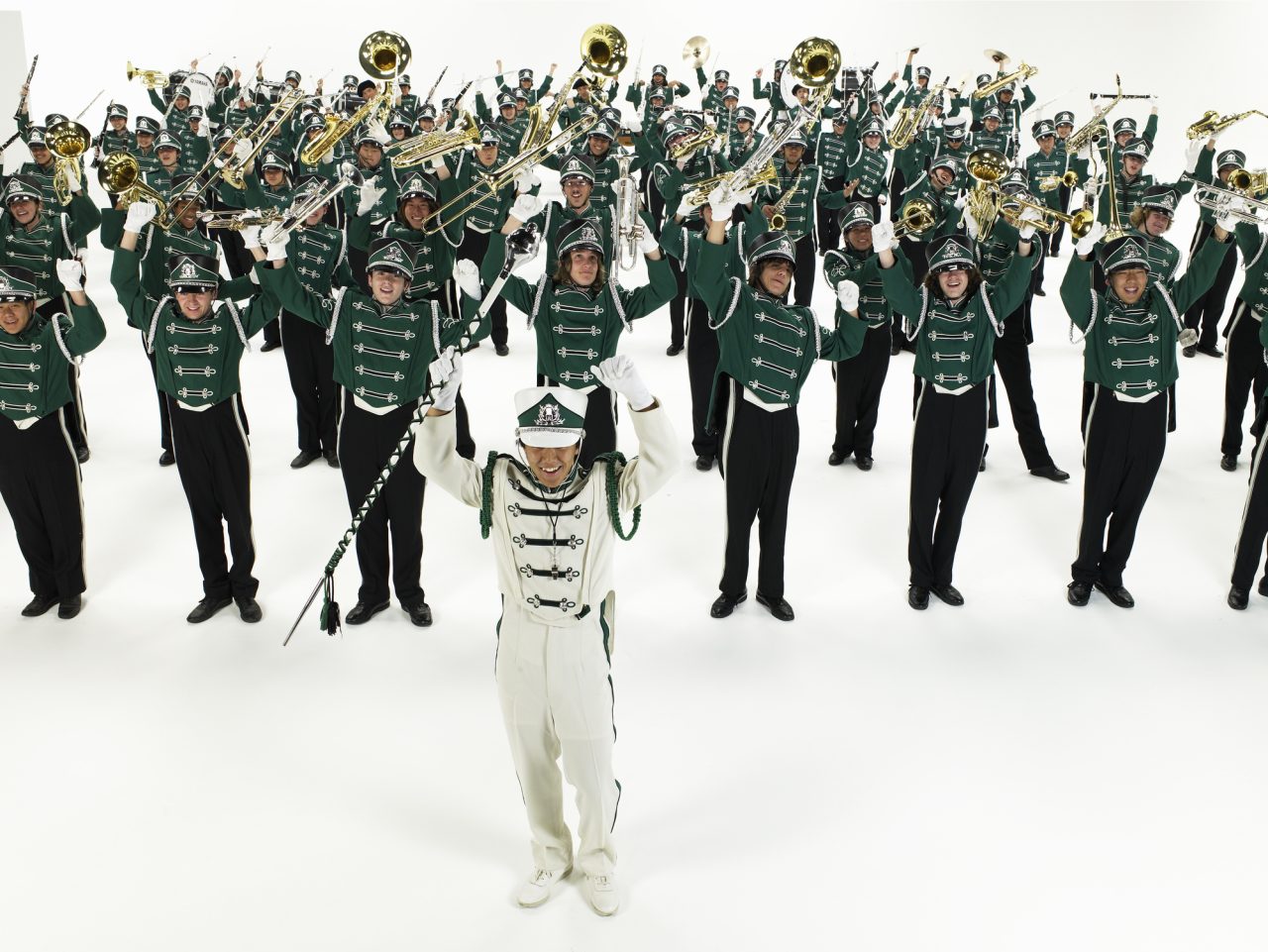
Skolekorps i stor klynge med instrumentene hevet over hodet.

Undervisning i et klasserom der mange elever rekker opp hånda.
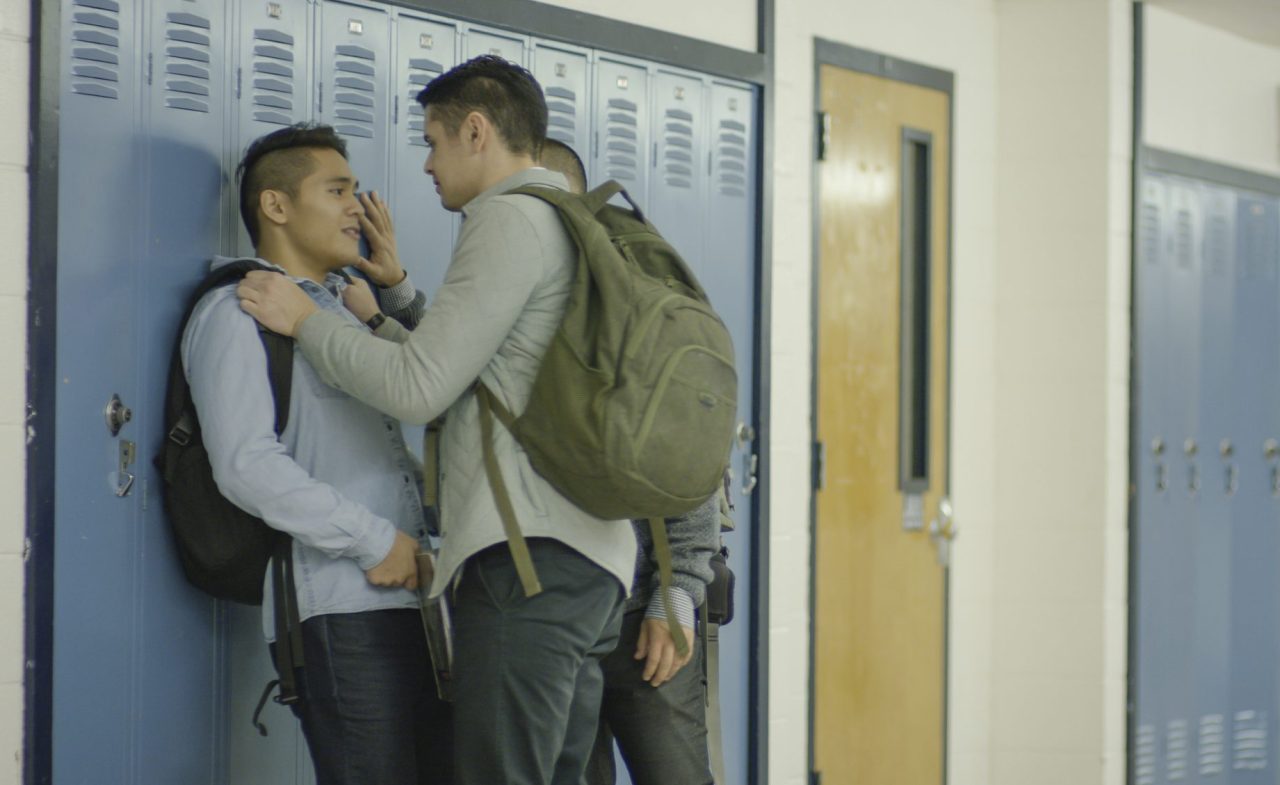
To tenåringsgutter plager en medelev ved en rekke med skap.
Role reversal
How would you behave if you took a different role?
- You come home and act like a stranger in your own home
- You suddenly turn 80 years old
- You’re about to become a mother or a father
- You change your religion
- You become Prime Minister
- You change your gender
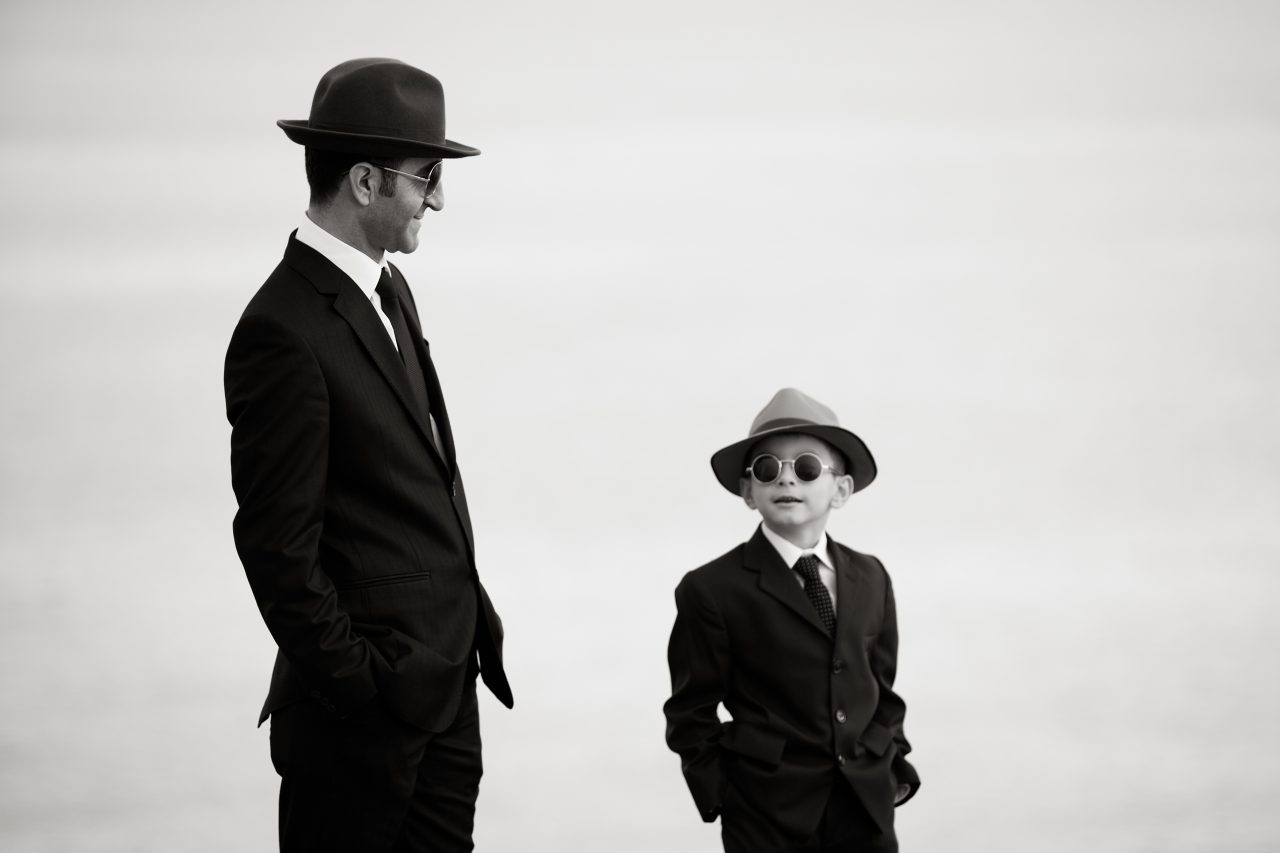
Sorthvitt bilde av en far og ung sønn der sønnen er kledd som faren i dress og hatt.
Breaking norms
Social deviance is when you break the norms and distance yourself from society. This can be both positive and negative.
Negative because it can lead to crime. Positive because questioning known patterns can lead to further development of society.
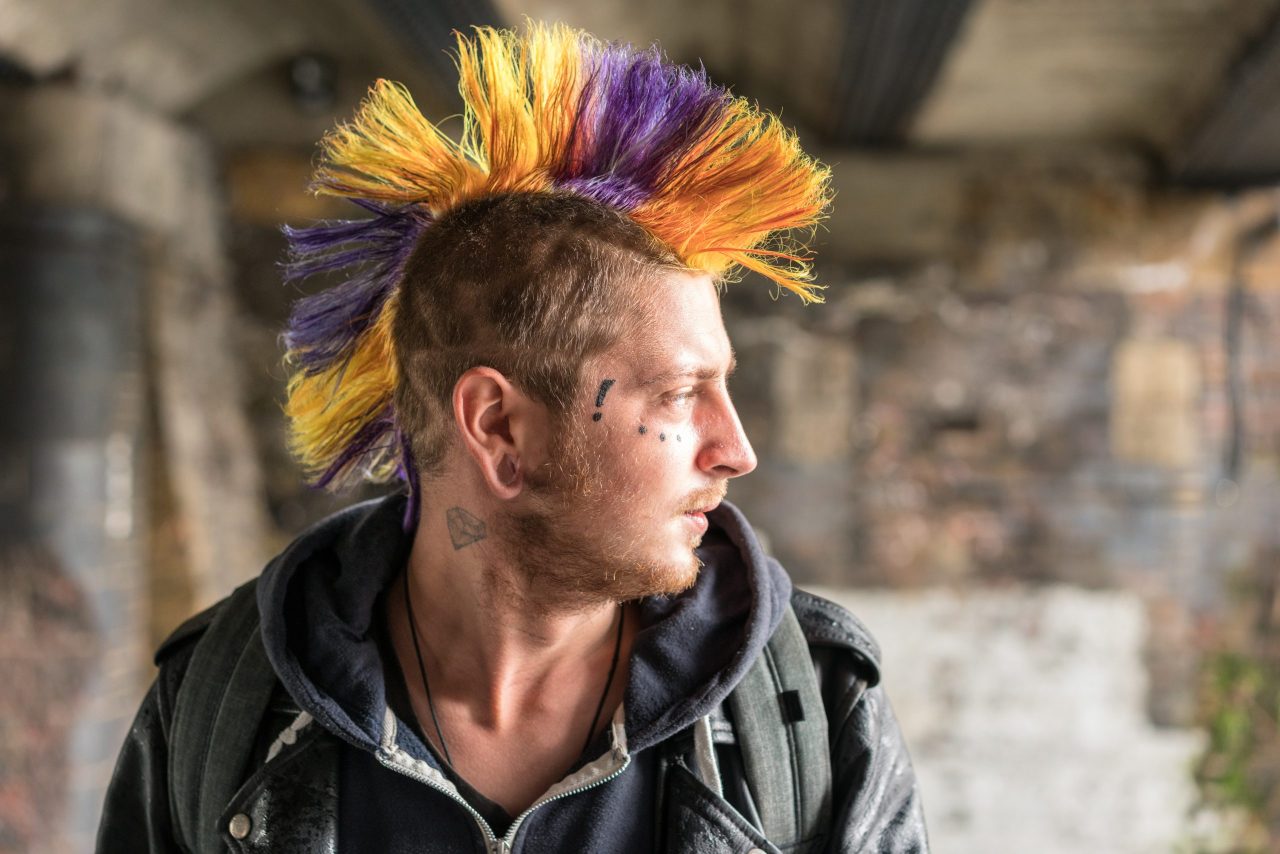
En ung mann med sort hettegenser, sort skinnjakke og hanekam med striper av gult og fiolett.
Social media
Social media affects our identity. Some people seem to have a perfect life, while others give a more realistic picture. Who we really are is not always the same as who we are on social media.
Finding your true identity is not always easy. Who you are is not always what people around you think you should be. What does it mean to be yourself, and how easy is it really?

Ung influenser med rosa hår som viser frem en gullsko foran et kamera.
Sources:
- identitet i Store norske leksikon på snl.no. Hentet 23. november 2021 fra https://snl.no/identitet
- Skirbekk, Sigurd; Tjora, Aksel: sosialisering i Store norske leksikon på snl.no.
Hentet 23. november 2021 fra https://snl.no/sosialisering
- naku.no (23.11.21): Identitet
https://naku.no/kunnskapsbanken/identitet
Media Rights:
-
-
Getty Images
-
Getty Images
-
Getty Images
-
Getty Images
-
Getty Images
-
Getty Images
-
Getty Images
-
Getty Images
-


Socialisation
Socialisation means that people learn how to live in a society by understanding the rules and norms. You follow the rules that most people follow.
This means that we should be able to separate between right and wrong and between good and evil.
Consequences
If you don’t follow the rules, you can get punished, either formally through breaking the law or informally through breaking the norms. Formal punishment can be a fine or prison time. Informal punishment can be getting house arrest or being banned from a group.
The rule is that the formal is normally written down, and norms are something that is expected in different situations.
1 / 2
En mann sitter med hodet bøyd i en fengselscelle.